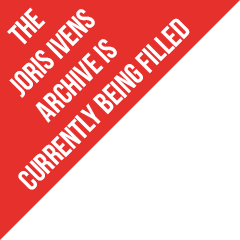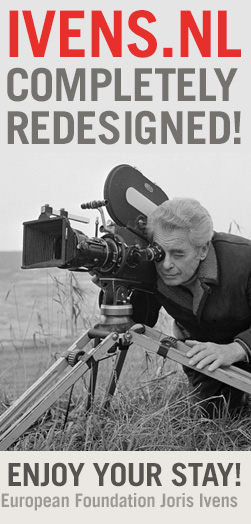

Title: Fuera de campo (Out of field vision)
Director: Hugo Giménez
Curator: Fernando Moure
Country: Paraguay
Year: 2014
Format: HD
Interview with curator Fernando Moure down here
About the curator
Name: Fernando Moure
Function: Art critic, Film critic, Film-Programmer
What is your main interest:
Experimental films and its fertile influence on documentary and fiction. A background in art and film history, added to Latin-american origins and being in Europe weaves my interest in post-colonial interrelations and legacy with its cultural, political, social, human experiences and problems.
Where do you come from/ where do you live:
I was born in Patagonia, in a little town towards the South Atlantic in 1968. Moved to Paraguay with ten years, and after the fall of a very long dictatorship in 1989, I got involved in the art scene of my adoptive country, through my role as editor of a cultural fanzine. Parallely I learnt art history and cultural studies, mentored by artist Livio Abramo and art critic Ticio Escobar, among the rich influence that local artists and filmmakers gave me. In 2005 I moved to Barcelona to attend a Master in Curatorial Studies and since 2009 I live in Cologne, where I raised a family.
About the film and the filmmakers:
What can you tell about this film?
The film focuses on three victims of the Curuguaty Massacre which happened on June 15, 2012, during a police raid on homeless peasants. The confrontation took 17 lives, and spurred a congressional coup, disguised as a political trial, that resulted in the impeachment and the removal of then President Fernando Lugo.
The coup d'état to Lugo is an open wound into the paraguayan young democracy, who is not allowed to grow, even to born. I need to put it clear: the ruling oligarchy and the transnational agricultural interests found Lugo´s presidency intolerable, fearing that it was generating false expectations among the masses of Paraguayan workers and oppressed.
How does this film relate to the theme „politics and poetry“ in your opinion?
To put back those forgotten victims into the field (of vision), to give voice to the silenced and whose who were left outside of the History (in the sense of the is the leit-motif of this work, as I see it. Art had always tried to represent something real (I´m not meaning only physically real), and fortunately there are examples in film who had fulfilled these expectatives.
In Giménez own words, „the returning to the place of a massacre (…) where the pain and absence feel heavy; because an image never carries the totality of its significance,” states the film´s main purpose. We watch three sad, long and peaceful confessions: the first one is madeby Dominga Mora and Roberto Ortega, the couple who lost their only son, Luciano. The third one, is protagonized by Lucía Aguero, who also lost his brother. At the very end of the film, Lucía pours a true poetic victory evoking the massacre, through a song a capella, her funeral musical memory in homage to his brother.
“Curuguaty and all the great tragedies can not be real and rationally dimensioned in their totality, only from the periphery, from outside of field... from the mythological one is also possible", also affirms Giménez, who recalls in his films the essayistic path of Farocki or Lanzman.
Are politics and poetry (or politics and arts) two separate worlds according to you? Why / why not?
Definetively not, and specially in Paraguay. Our artists are the only voice we have, a reference, educated persons in a land with a traumatic history. Or to quote the old feminist cliché applying to the arts, „the personal is politic“.
For me, art had and must exist by itself, as a representation of reality, from the caves to the pixel. But there are issues...so painfull issues like violence and inequality that they should, must be expressed, even if at first sound propaganda. Art can speak loud or low, but must embrace all sorts of subjects, there are only good or bad artists. I think that without artists who collect the dreams and nightmares of mankind we are lost, we loose quality, perception, sensibility.
We feel quite impotent with the uncertainity that flows in Paraguay since then. Nowadays, the conservative government of president Horacio Cartes (from the Colorado Party, a principal political force with more than 70 years in power) leads torments and forced exile towards the peasants communities. Thanks to films like Fuera de campo we can understand the yet neglected voice of the peasants proud of its guaraní culture, the echoes of the marginalization and the disaster of capitalism in these rural and poor populations.
Fuera de Campo made me think a lot in a word I discovered in Germany oftenly used by Walter Benjamin: „Jetztzeit“, o „Now time“. He uses this term to describe a notion of (imaginary) time with a revolutionary possibility, a time that has been detached from the continuum of history. It is a time filled with energy, and needs the intervention of the artist or revolutionary to produce it. As Benjamin, Giménez contrasts „Jetztzeit“ with the ‘homogeneous empty time’ of the ruling class, which is, at the end, history written from the perspective of the victors. Giménez chose to remember and to use the empty time of the paraguayan elites „common sense“.
There are a lot of political tensions and changes in the world right now. Do you (already) notice any changes in the focus and/or ideas and work of artists because of these developments? Do you have examples?
Fuera de Campois an example of the confrontational power of documentary cinema. In Paraguay there is no institutional attempt to come to terms with the past, and the deaths in Curuguaty are officially considered anything to be ashamed by the actual „Justice“ and Government. There is no historical tradition or process to adjust counts with crimes of the past or with the actual ones.
Nobody is reconsidering the violence, only some artists with critical and sensible sense. The paraguayan society is so involved in corruption or related to the past dictatorship or to actual governments, the patriarchal and paramilitary tradition of violence continues to flourish.
An autobiographical, psychoanalitical and sensible documentary released in 2009, Cuchillo de palo, by director Renate Costa, explores through a family secret the darkest context of the Stroessner´s dictatorship (1954-1989). Films Novena (2009) and Costa Dulce (2014) directed by Enrique Collar, a painter and filmmaker established in Rotterdam, give authentic visions of the peasant and guaraní culture of Paraguay; Pablo Lamar, author of The last land (2015) testimonies rural identities in emotional/universal contexts. Exercises on memory (2016) from Paz Encina has done a great advance in confronting memory through poetic and delicate approachings to Paraguay´s darkest times.
Besides the theme of „Politics and poetry“ are there any other comparisons between this artist and Ivens according to you?
Such a difficult question! I would say I like the oblique way of thinking and looking of Ivens and Giménez. I like films where not everything is given. Imagination and open interpretations make a difference between entertainment and reflection.
I like to watch again "Rain" or "Valparaiso" of Ivens, and to see how afterwards, the past survives and a story is perpetuated. In this sense, I am sure Giménez´s Fuera de campo will survive healthy, because it cared about the public, letting space and time to think or to feel. Even its denounce or its politically related subject will be remembered more as an artistic testimony of non fiction film, thanks to its subjectivity and deliberate “off camera” vision.
